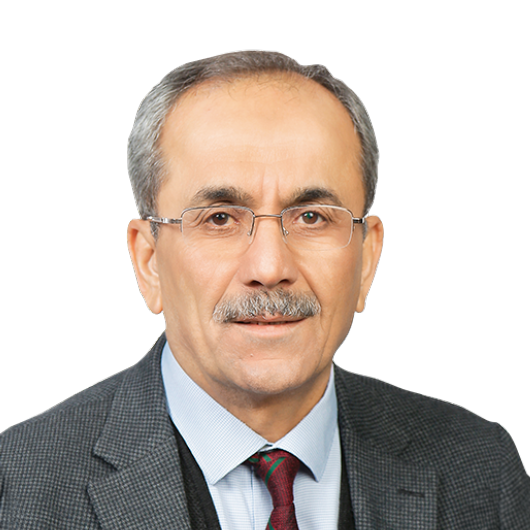
- 02.02.2025, Sunday
- 18:01
The rising 'reactionary threat' in the West
22:0218/08/2024, Sunday
Next article
Selçuk Türkyılmaz

For over a decade, Türkiye has been presenting a new perspective to the world, particularly regarding the Palestinian issue, in opposition to the unholy alliances surrounding the Anglo-Saxons. This open stance from Türkiye is closely followed abroad. In recent years, as elections approach in Türkiye, the views of the alliance countries on Türkiye have been prominently reflected on magazine covers in Europe and the U.S. They have taken a clear stance against President Erdoğan and have intervened
For over a decade, Türkiye has been presenting a new perspective to the world, particularly regarding the Palestinian issue, in opposition to the unholy alliances surrounding the Anglo-Saxons. This open stance from Türkiye is closely followed abroad. In recent years, as elections approach in Türkiye, the views of the alliance countries on Türkiye have been prominently reflected on magazine covers in Europe and the U.S. They have taken a clear stance against President Erdoğan and have intervened domestically to hinder Türkiye through various means. In my opinion, the most severe of these interventions was the Gezi Park protests. Even then, the frameworks of Western superiority and Eastern backwardness were beginning to lose their effectiveness. The notion of “we should look for faults in ourselves” was soon rendered irrelevant. They succeeded in Egypt but failed in Türkiye. Afterward, external interventions followed in quick succession.
While subsequent events had different targets, they were not fully revealed. The outcomes of the December 17-25 intervention following the Gezi Park protests are also not completely clear. Connections with marginal groups allowed members of the terrorist FETÖ to participate in social events, but overcoming their lack of experience in this area was nearly impossible. FETÖ was a new type of terrorist organization. When the unholy alliance's internal elements lost their power in the summer of 2013, game-changing moves followed one after another. The intervention on the MIT trucks at the beginning of 2014 should be considered in the same category as the December 17-25 events. They aimed to sideline Türkiye in Syria and managed to do so for a while. However, one outcome of these events was overlooked. These interventions severed FETÖ’s last ties to the nation, the state, and religion. They could never return or even show regret. It is regrettable that legal experts of that time did not notice this detail.
President Erdoğan’s defensive stance was built on very solid foundations. As Erdoğan moved forward, Türkiye faced interventions. The coordination between internal and external interventions was quite noticeable. The clear expression of this coordination by U.S. presidents and presidential candidates was a hallmark of the period. They were now free from the pressure of exposure. Thus, the era of open intervention began. As Türkiye resisted internally, the Anglo-Saxons and their unholy alliance members adopted an aggressive stance. They aimed either to collapse the resistance lines or to accelerate the collapse of the Western civilization perception they had set up against the East and others. In the most striking sense, “reactionism” reemerged, and the era of reviving the old system based on Anglo-Saxon superiority began.
It is not without reason that we see some of the ugliest examples of the collapse of the Western civilization perception in Palestine. Even books written in the 1930s mention Anglo-Saxons' attempts to colonize both Ukraine and Palestine simultaneously. The emergence of decolonization hopes for Palestinians a hundred years after 1917, in the face of this reckless desire, is an intolerable development for them. Therefore, they also removed their masks in Palestine. In this context, it is no coincidence that we face the same picture depicted by the great poet Akif a century later:
“Ah, that twentieth century, that noble creature, As many of its favorites as there are, truly wretched, Spat in front of Mehmetçik for months; Unashamedly poured out the secrets from its belly. If the mask hadn’t been torn, that face would still be our curse... The so-called civilization, that vile, truthless, shameless face.”
#West
#Reactionary
#Threat
LEGAL NOTICE
The BIST name and logo are protected under the "Protected Trademark Certificate" and cannot be used, quoted, or altered without permission.All rights to the information disclosed under the BIST name are entirely owned by BIST and cannot be republished. Market data is provided by iDealdata Financial Technologies Inc. BIST stock data is delayed by 15 minutes.
